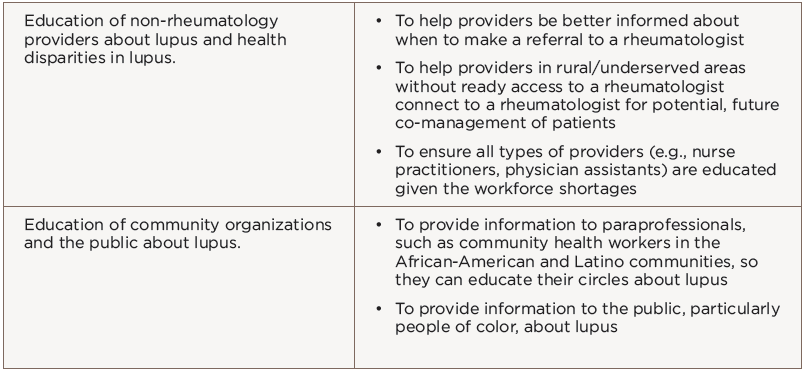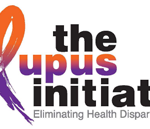
Ms. McCalla
Recently, UCOIN was one of five programs awarded $10,000 by the American Society of Association Executives Foundation’s Innovation Grants Program in recognition of its innovative efforts. According to Dr. Lim, this was a particularly competitive round of applications, and validates what the ACR is doing as innovative and important.
According to Sheryl McCalla, UCOIN project director and the ACR vice president of collaborative initiatives, the initial phase of UCOIN is creating member-driven initiatives to eliminate racial and ethnic health disparities within rheumatology.
“We put out a call to see who would like to work with us on projects having to do with health disparities,” she says. Members were asked to submit letters of interest, and Ms. McCalla and her staff worked with selected members to develop and submit proposals to the funder by late March. Two projects were funded and began in July 2018.
The ACR is also working on proposals that address increasing the number of minorities who participate in clinical trials as well as increasing healthcare access. Both the lack of minority representation in clinical trials and barriers to healthcare access were identified by UCOIN organizers as potentially negatively affecting minority populations with rheumatologic conditions.
Building on Past Success
If the past is prologue, UCOIN should succeed. According to Ms. McCalla, UCOIN is an outgrowth of The Lupus Initiative (TLI) that was launched by the ACR in 2009, with funding from the Office of Minority Health, the Office of Women’s Health and the Surgeon General, to get members involved in reducing health disparities in lupus by developing educational resources on lupus.
“The idea of UCOIN is to broaden and build on what we’ve done in lupus,” she says, “and to use the process of UCOIN as a platform for innovation so our members can drive the thinking about how to tackle these issues across all of rheumatology.”
To date, TLI has produced a number of successful projects aimed at reducing disparities in lupus, most of which focus on education (see Table 1). Table 2 cites a few examples of specific educational programs offered through TLI.
Ms. McCalla emphasizes that success with these programs was not linear and required a learning curve marked by much trial and error. Among the lessons learned was the amount of agility required to allow members to complete their projects within short time frames. In addition, they learned collaboration across internal ACR departments and organizations external to the ACR is needed to develop projects with bold objectives with short time frames, and that members need innovative space to take calculated risks.



